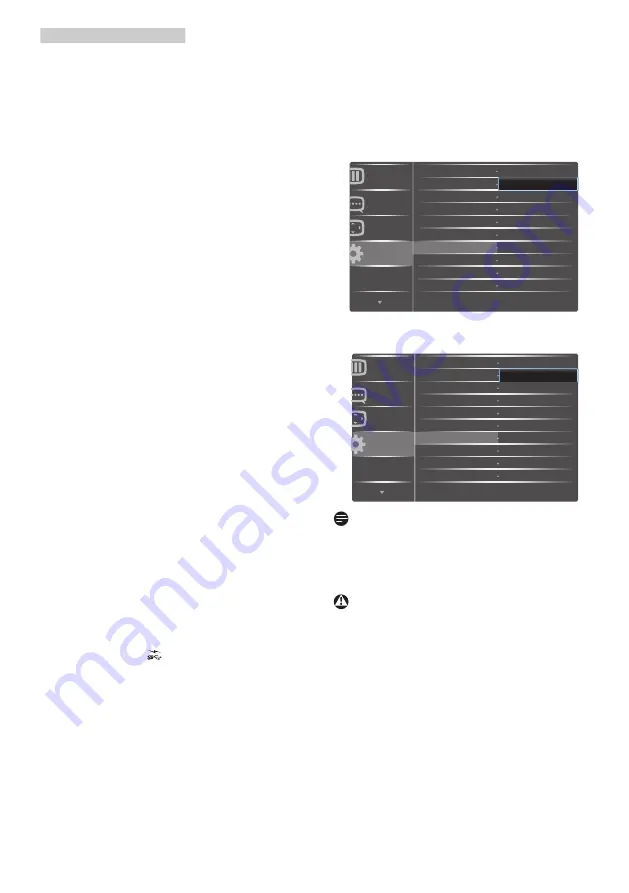
7
2. Setting up the monitor
Connect to PC
1.
Connect the power cord to the back
of the monitor firmly.
2.
Turn off your computer and unplug
its power cable.
3.
Connect the monitor signal cable to
the video connector on the back of
your computer.
4.
Plug the power cord of your
computer and your monitor into a
nearby outlet.
5.
Turn on your computer and monitor.
If the monitor displays an image,
installation is complete.
USB hub
To comply with International energy
standards, the USB hub/ports of this
display are disabled during Standby
and Off modes.
Connected USB devices will not work in
this state.
To permanently put the USB function
in “ON” state, please go to OSD Menu,
then select “USB standby mode”, and
switch it to “ON” state.
USB charging
This display has USB ports capable of
standard power output including some
with USB Charging function (identifiable
with power icon ). You can use these
ports to charge your Smart phone or
power your external HDD, for example.
The display must be powered ON at all
times to be able to use this function.
Some select Philips displays may not
Power or Charge your device when it
enters to “
Sleep/Standby
” mode (White
power LED blinking). In that case,
please enter to OSD Menu and select
“USB Standby Mode”, then, turn the
function to “ON” mode (default=OFF).
This will then keep the USB power and
charging functions active even when the
monitor is in
sleep/standby
mode.
272B7QPJEB:
272B7QPTKEB:
Note
If you turn off your monitor via the
power switch at any given time, all the
USB ports will power OFF.
Warning
USB 2.4Ghz wireless devices, such
as, wireless mouse, keyboard, and
headphones, maybe have interference
by the high-speed signal of USB
3.0 devices, which may result in a
decreased efficiency of the radio
transmission. Should this happen,
please try the following methods to
help reduce the effects of interference.
•
Try to keep USB2.0 receivers away
from USB3.0 connection port.










































